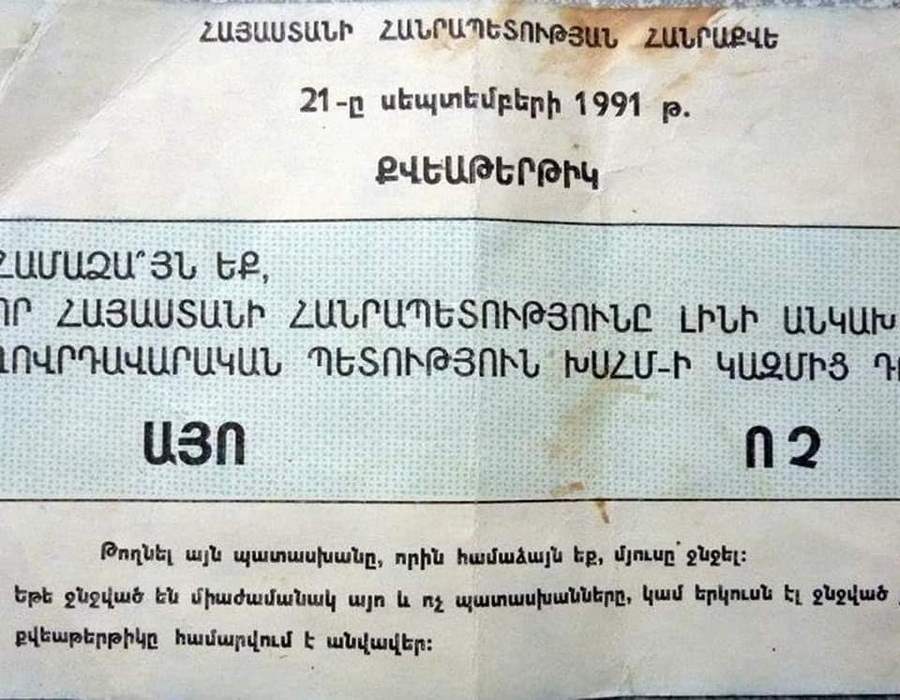Recently, rumors have resurfaced suggesting that we Armenians “accidentally” gained statehood in 1991, solely because the Soviet Union collapsed, and that our people weren’t particularly enthusiastic about it—it just happened that way. These rumors aren’t new: in the early 1990s, those who believed in the possibility of restoring the Soviet empire and “living well again” held such views. Now, those who harbor these illusions are 70-80 years old and, for obvious reasons, are leaving the scene.
Currently, this thesis, which doesn’t hold up under historiographical scrutiny, resurfaces not due to “Soviet nostalgia”—that phase is long gone. Now, there’s another ailment, another misconception: that we can “live well” here without a state, or (which is essentially the same) that we have already built the state and can now enjoy it without struggle and sacrifice.
On that note, I’d like to draw attention to Sevak Aramazd’s article, which bears a very telling title: “Buried Alive: The Armenian Political End.” If I were to choose the title, I might opt for something more direct: “The Statehood of Dead and Unburied Armenians.”
Setting aside the author’s judgments with which I disagree, I want to highlight two points that I believe are indisputable. First, to have a state, a crucial quality is required: a “unified will to self- assertion.” From 1988 to 1991, this will existed, but in the following years, it was eroded because the political and intellectual elite advanced an apolitical agenda.
The second point is that a state disintegrates when “the principle of continuity, which is the indisputable guarantee of any state’s survival, is broken within the state’s consciousness.” In other words, the political consciousness strays from a unified will to self-assertion, which is precisely what we observe today. Moreover, it seems to me that political consciousness has ceased to be political at all.
Thus, we have a society that does not truly desire a state and that aligns with the apolitical agendas of the current government and opposition. These “falling” sentiments can change. To begin with, we should stop viewing the actions of the people in 1988-1991 as mistakes.
Aram Abrahamyan




















































